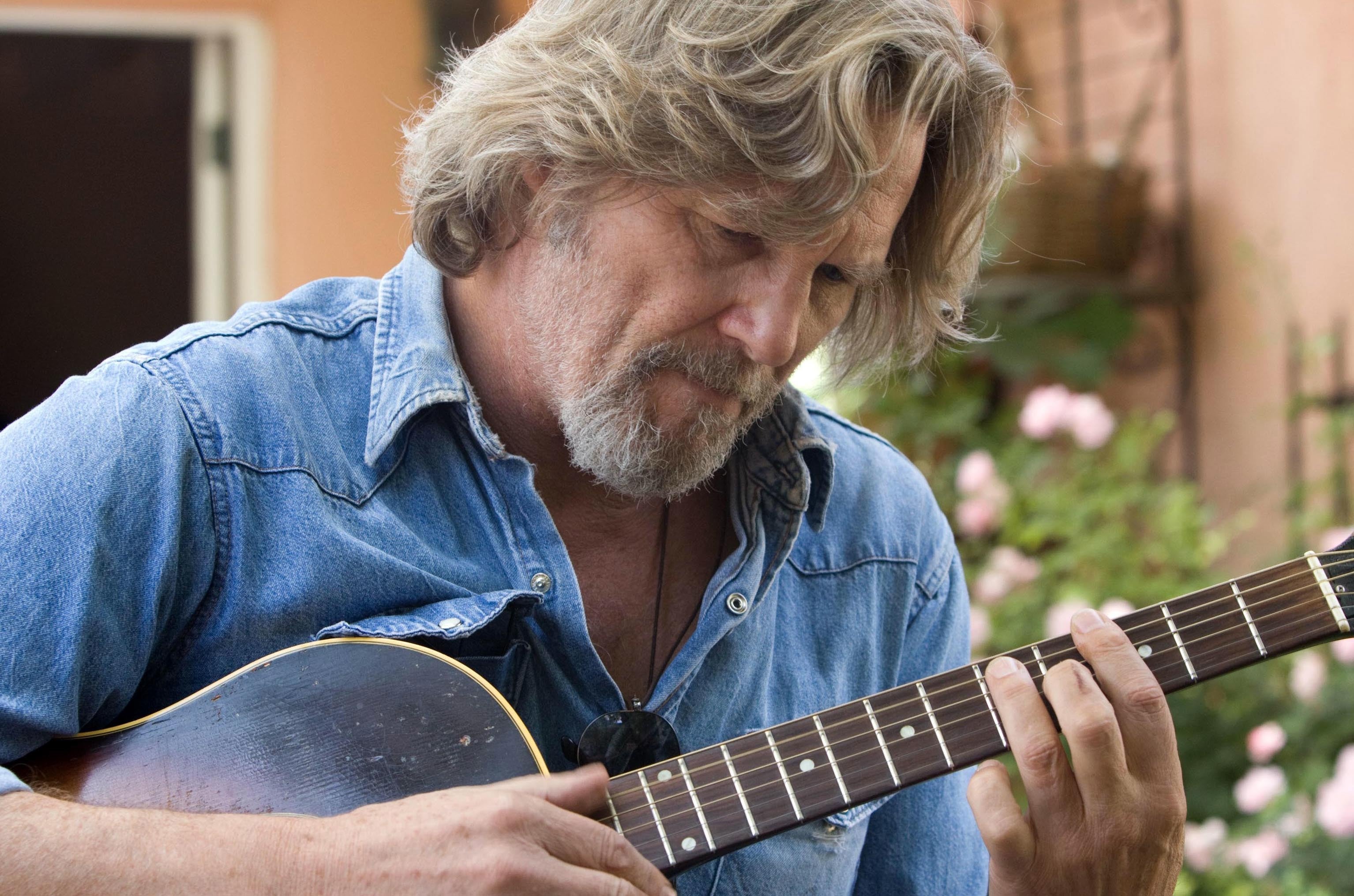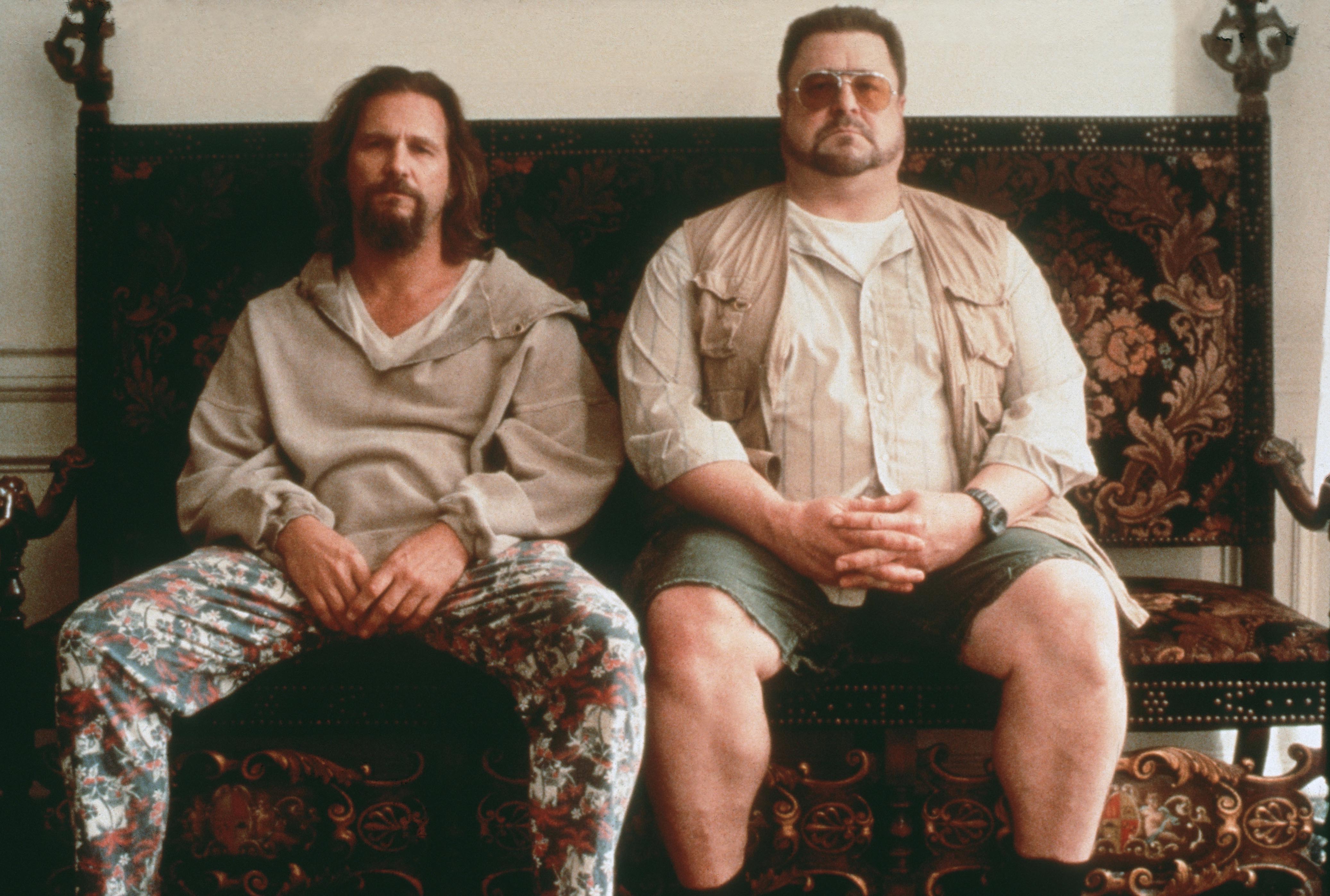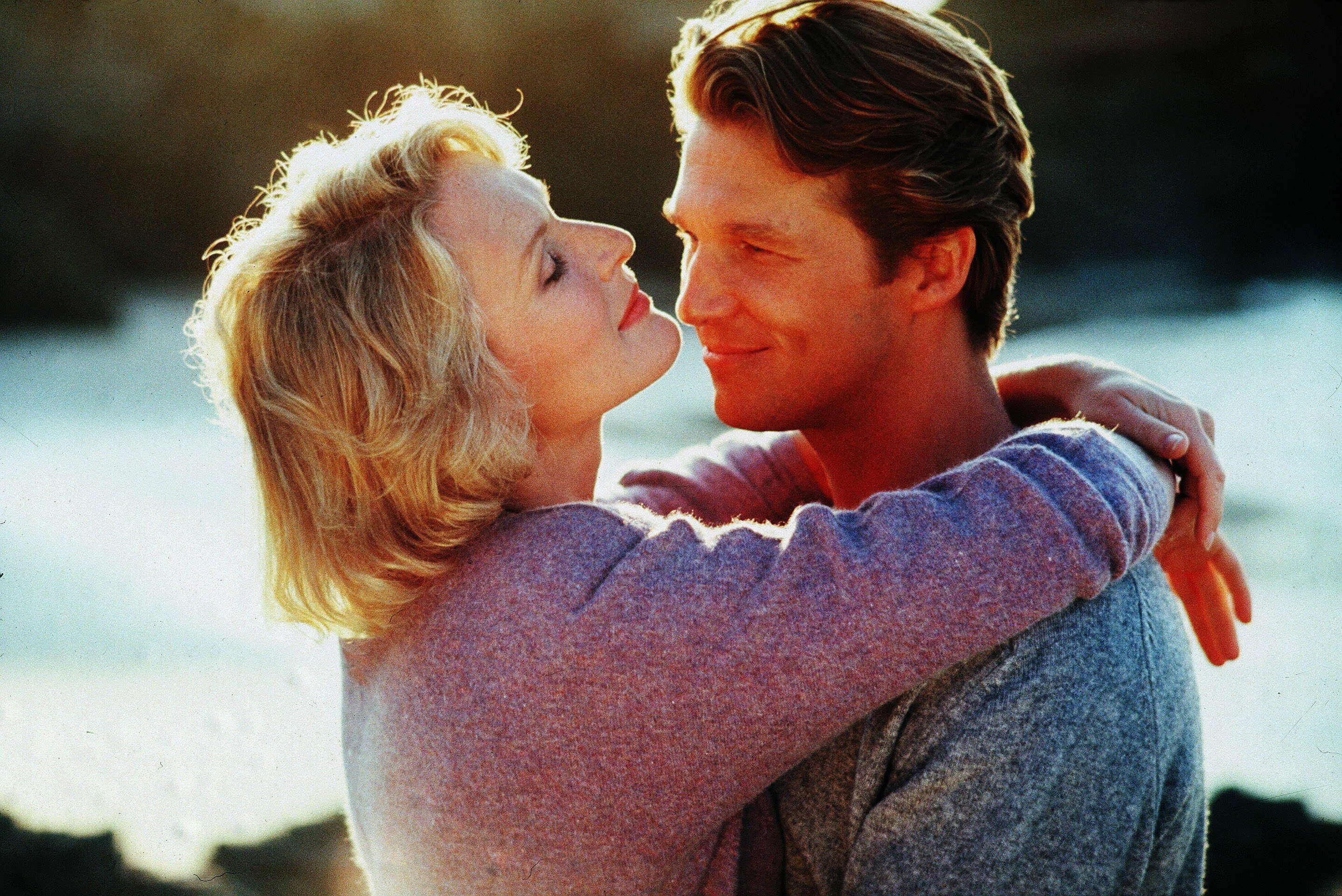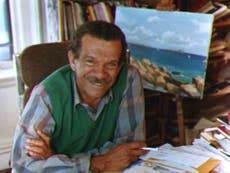The seven ages of Jeff Bridges – Hollywood’s woefully underappreciated leading man
To celebrate 70 years of the star on screen, Geoffrey Macnab looks at the many twists and turns Bridges’ extraordinary career has taken since 1951

The Company She Keeps (1951) is one of those patchy old Hollywood movies that has long since slipped from mainstream view. It’s a melodramatic thriller about a female con artist (Jane Greer) fresh out of prison who plots to steal her parole officer’s boyfriend. “The whole picture has the flavour of the cheapest and pulpiest romance,” The New York Times dismissed it when it was released 70 years ago. Other reviewers were equally sniffy. No one paid much attention to the baby who Greer briefly cradled in her arms.
This, though, was Jeff Bridges, making his screen debut at the ripe old age of six months. He landed the role by chance. His actor father Lloyd was very friendly with the film’s director, John Cromwell, and had visited him on set. “I need a baby,” Cromwell had told him. “Here, take Jeff,” Lloyd said, blithely handing over his newborn son.
Bridges’ mother Dorothy has a bit part in the film, as does his older brother, Beau, but Jeff wasn’t at all happy about being steamrollered into a movie career before he was even out of nappies. “I never really wanted to be an actor,” he later claimed. “As a matter of fact, I resisted it because it felt like nepotism to me, that I had the door opened for me because of my father. I wanted to be appreciated for my own talents.”
That attitude soon changed. In the 70 years since his debut, Bridges has put 94 film and TV credits to his name and will soon be back on screen as the star of the espionage series The Old Man, in which he plays a grizzled ex-intelligence officer.
Shakespeare wrote about the seven ages of man. In his acting career, Bridges has now gone full circle, covering all seven bases en route – and then some. He started in earliest infancy; went on to take roles as a school kid; played his share of young delinquents and romantic leads; turned into a minor sex symbol in Eighties thrillers; portrayed a few psychopaths in early middle age; achieved his apotheosis as “the Dude” in The Big Lebowski (1998); took on heavier, darker roles; had his Falstaff moment out west as Rooster Cogburn in the Coen brothers’ remake of True Grit (2010); and is now the go-to guy for casting directors in search of growling veterans. He was diagnosed with lymphoma last year (“new s*** has come to light” he tweeted about his illness, sounding just like the Dude) but aims to keep on working.
It may seem strange to suggest it, but Bridges in his seventies remains woefully underappreciated. When he won his Oscar as the drunken country and western singer in Crazy Heart (2009), it could have been construed as a guilty gesture on behalf of Academy voters trying to make up for all those other equally stirring performances they had ignored.
Bridges assumed an unexpected cult status thanks to The Big Lebowski, the film that now, for better or worse, defines his career. It’s a magnificent and highly eccentric turn from an actor not previously known for his comedic ability. Jeff “the Dude” Lebowski is lazy and shambling but absolutely endearing. His approach to life has inspired studies by Zen philosophers. You can’t help but warm to his laidback attitude from the first moments in the film, when two heavies assault him in his LA apartment. “Where’s the money?” they yell at him as they hold his head down the toilet bowl. “Down there somewhere,” he replies nonchalantly. They call him a loser and pee on his rug and he simply tells them: “At least I’m house trained.”
Slackers everywhere found a new patron saint in the shaggy, ever-amiable Lebowski. The downside, though, is that the Dude is the first, and sometimes the only, Bridges role that many fans now remember. Bridges is so convincing that some fans thought he was playing himself.
New Yorker critic Pauline Kael said that, early in Bridges’ career, he was “the most natural and least self-conscious actor that has ever lived; physically it’s as if he spent his life in the occupation of each character”. She was an ardent admirer, suggesting in a review of The Last American Hero (1973) that Bridges “on his own” was enough to “make a picture worth seeing” and that he “just moves into a role and lives in it”.

It was as if, years in advance, Kael had seen the Dude lurking within Bridges. However, her compliments had a back-handed sting. Even as she praised him, she doubted that Bridges was capable of “the outrageous explosive scenes” that his contemporary Robert De Niro brought off in his first movies.
In the Seventies, the young actor played his share of tormented lovers and loners. In Peter Bogdanovich’s The Last Picture Show (1971), he is the abrasive Duane, a high-school football star in a small Texas town. He’s the alpha male type, arrogant and self-assured, at least until he fails to make the grade as Cybill Shepherd’s lover. She’s trying to lose her virginity but, in an excruciating scene in which he simply can’t get it up, he isn’t able to take it from her.
“That boy has always had a meanness in him,” the cafe waitress (Eileen Brennan) observes. Typically, though, Bridges made a character who might have been spiteful and obnoxious seem sympathetic. Even when he is smashing a bottle into his best friend’s face in a jealous rage, he looks furtive and forlorn. This was his first significant film role but he was already extraordinarily comfortable in front of the cameras.
The young Bridges also excelled as the would-be boxer Ernie Munger in John Huston’s Fat City (1972), again bringing pathos and depth to the role opposite Stacy Keach as his alcoholic has-been mentor. “It’s about people who are beaten before they start but who never stop dreaming,” Huston said of the film. That was a description that could apply to many other of Bridges’ early screen characters. He was never the James Dean or Marlon Brando-like rebel. When he played seemingly brash young outsiders, they always turned out to be vulnerable and very lost on the inside.
As he grew older, Bridges began to take some far darker parts. In Jagged Edge (1985), he’s the sociopathic newspaper publisher who, it is finally revealed, has killed his own wife. In The Vanishing (1993), George Sluizer’s American remake of his own Dutch film, he plays the deceptively mild-mannered Barney who likes to kidnap people and bury them alive. In both cases, the casting worked well precisely because it was so against the grain.

Bridges is such a grounded and likeable screen presence that it is all the more shocking when he turns diabolic. Terry Gilliam cast him as the shock jock Jack Lucas in The Fisher King (1991), a brash narcissist who, like so many other Bridges characters, is brought very low. Jack is devastated to discover that one of his on-air rants has provoked a caller to commit mass murder. He turns into a self-loathing, alcoholic bum who, unlike the Dude, has no redeeming charm whatsoever. At his lowest ebb, he is rescued by a homeless vagrant (Robin Williams) on a crazy quest to find the Holy Grail. It’s yet another example of Bridges playing an unsympathetic character in a sympathetic way. He combines brilliantly with Williams, never trying to upstage him but still holding his own when the livewire actor is at his most manic.
As the years rolled by, Bridges became yet more adventurous. He did sci-fi, westerns, comedies and political dramas. He’d play the president in one film and a washed-up country star in the next. Big-name directors from Michael Cimino, Francis Ford Coppola and Ridley Scott to Walter Hill, John Carpenter, Gilliam, Sidney Lumet and the Coen brothers all looked to cast him. He did Marvel films, Matthew Vaughn spy romps and low-budget indie dramas. There were many misfires along the way but he kept on working. While his brother Beau Bridges began to play character parts, Jeff was usually still given leading roles.
Some have likened Bridges to Robert Mitchum, the dimple-chinned star who, a generation before, likewise sustained a career as a laconic leading man for 50 years without ever letting the quality of his performances falter. You could easily imagine Mitchum playing several of Bridges’ recent roles, for example his Oscar-nominated turn as the ornery, stubborn Texas Ranger who never hurries for anything in David Mackenzie’s Hell or High Water (2016).
Bridges, though, has more range than Mitchum. He is a rare example of an actor whose choices widened rather than narrowed as his career progressed. Crazy Heart, which won him his Oscar, and The Big Lebowski are the first titles people reach for when his name is mentioned. Look beyond the Dude, though, and you will find extraordinary work from Bridges at almost every one of the seven ages.
‘The Old Man’ starring Jeff Bridges is due to be broadcast in 2022






Join our commenting forum
Join thought-provoking conversations, follow other Independent readers and see their replies
Comments